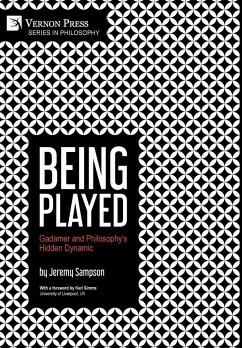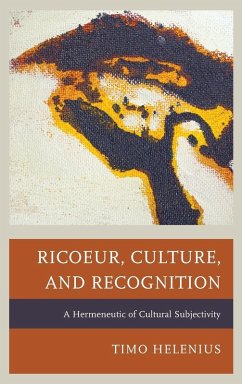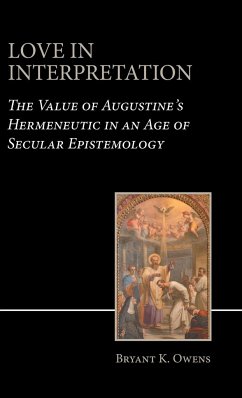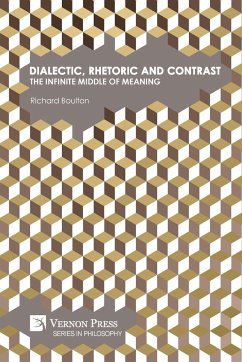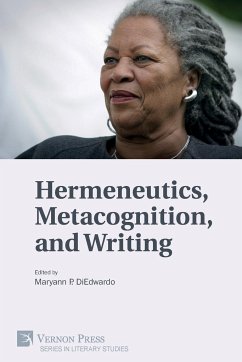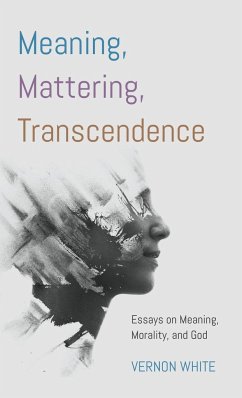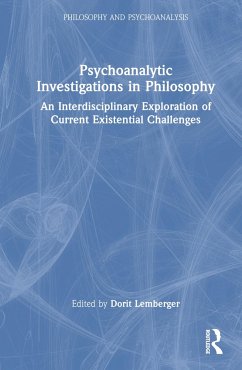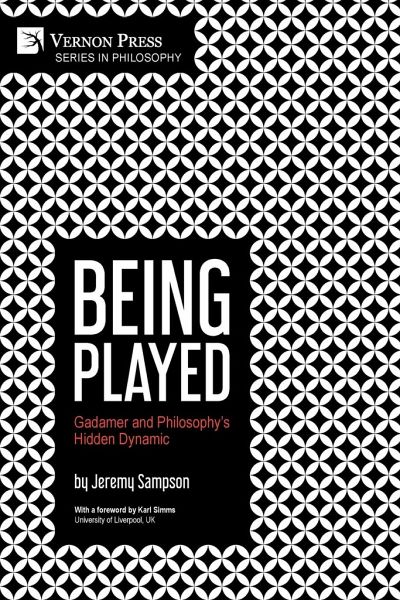
Being Played
Gadamer and Philosophy's Hidden Dynamic

PAYBACK Punkte
28 °P sammeln!
Are we being played? Is our understanding of the traditionally fixed and static concepts of philosophy based on an oversimplification? This book explores some of the theories of the self since Descartes, together with the rationalism and the empiricism that sustain these ideas, and draws some startling conclusions using Gadamer’s philosophical study of play as its starting point. Gadamer’s ludic theory, Sampson argues, reveals a dynamic of play that exists at the deepest level of philosophy. It is this dynamic that could provide a solution in relation to the Gadamer/Habermas hermeneutics d...
Are we being played? Is our understanding of the traditionally fixed and static concepts of philosophy based on an oversimplification? This book explores some of the theories of the self since Descartes, together with the rationalism and the empiricism that sustain these ideas, and draws some startling conclusions using Gadamer’s philosophical study of play as its starting point. Gadamer’s ludic theory, Sampson argues, reveals a dynamic of play that exists at the deepest level of philosophy. It is this dynamic that could provide a solution in relation to the Gadamer/Habermas hermeneutics debate and the Gadamer/Derrida relativism debate, together with a theory of totality. Sampson shows how ludic theory can be a game-changer in understanding the relationship between philosophy and literature, exploring the dynamic between the fictive and non-fictive worlds. These worlds are characterized simultaneously by sameness (univocity of Being) and difference (equivocity of Being). The book questions Heidegger’s idea that the univocity of Being is universal, instead maintaining that the relationship between the univocity of Being and equivocity of Being is real, and that ontological mediation is required to present them as a unified whole. Using the works of Shakespeare, Beckett and Wilde, Sampson contends that such a mediation, termed ‘the ludicity of Being’, takes place between literature and its audience. This literary example has profound implications not only for literature and its attendant theories but also for philosophy — in particular, ontology and hermeneutics. This book will be of particular interest to scholars of philosophy and literature, for it seeks to develop our understanding of ontology and hermeneutics. It should also engage the general reader who wishes to understand literature and philosophy with a genuinely new set of perspectives.



